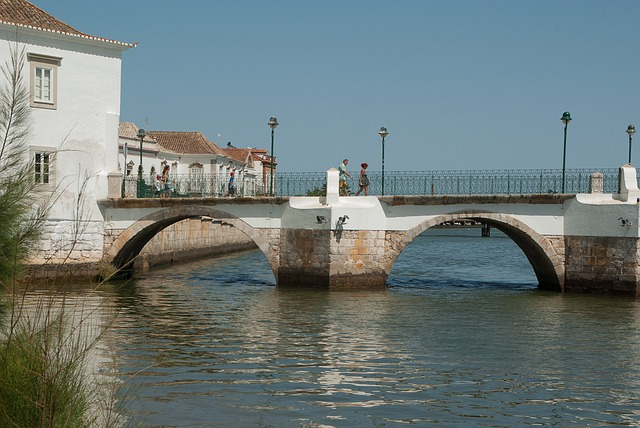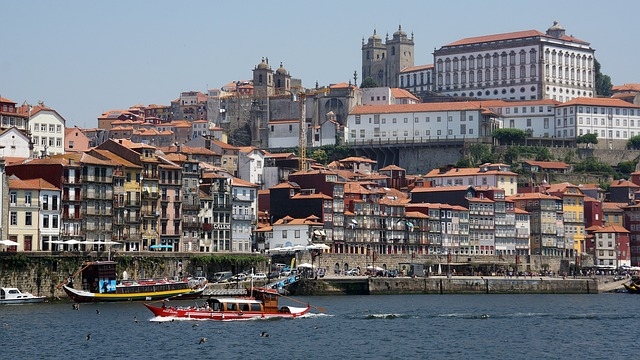Yes, Portugal is very friendly to foreigners. Portugal is widely recognized for its warmth and friendliness towards foreigners. The country's open and welcoming culture makes it a favorite among visitors and expatriates alike. From the bustling streets of Lisbon to the serene beaches of the Algarve, locals are known for their hospitable and helpful nature.
This welcoming attitude extends across Portugal, from urban centers to rural areas, offering a sense of belonging to those from abroad. Whether you're traveling, relocating, or simply exploring, Portugal's embrace of diversity and inclusivity is evident. This atmosphere not only enriches the experience of foreigners but also fosters a vibrant multicultural community.
From my expert perspective, the key to a smooth transition is adapting to the local culture and learning the language. Portugal offers a warm welcome and also provides a quality of life that many dream of, making it an excellent choice for foreigners looking for a new place to call home.

How is Portugal as a Country for Foreigners?
Portugal has established itself as a welcoming and inclusive country for foreigners, offering a blend of cultural diversity, natural beauty, and modern amenities. With its relaxed pace of life, affordable cost of living, and high quality of life, Portugal attracts expatriates from around the globe seeking to enjoy its vibrant cities, picturesque coastal towns, and charming countryside.
Portugal is generally welcoming and hospitable to foreigners. In my experience, the country offers a high quality of life, beautiful landscapes, and a rich cultural heritage. As a foreigner, I've found the Portuguese people to be friendly and accommodating, making it easy to adapt to life in Portugal.
Additionally, the cost of living is relatively affordable compared to other European nations, making it an attractive destination for expatriates. Overall, Portugal provides a favorable environment for foreigners looking to live, work, or retire abroad.

Warm Hospitality and Cultural Openness
One of the most striking aspects of Portugal is the warmth and friendliness of its people. Portuguese locals are known for their welcoming nature and hospitality towards foreigners. In some cases, though, there are different accounts for those who aren't Portuguese residents, and they have more limitations than true local bank accounts.
I've experienced this warmth personally. It's like being part of a big, global family. These societies cherish sharing their culture. They invite you into their lives and traditions. You learn, laugh, and grow together. It's a beautiful exchange of ideas and values. In my travels, I've found such openness eye-opening. It enriches both guests and hosts, creating lasting bonds.
Language and Communication
While Portuguese is the official language of Portugal, many locals, especially in urban areas and tourist hotspots, speak English fluently. This makes it easy for foreigners to communicate and navigate their way around the country without any language barriers.
However, learning Portuguese can greatly enhance your experience of living in Portugal and help you connect more deeply with the local culture and community.
Safety and Security
Portugal is consistently ranked as one of the safest countries in the world, making it an attractive destination for foreigners looking for a secure place to live or visit. According to the 2022 Global Peace Index , Portugal ranked as the sixth safest country in the world .
Whether you're strolling through the streets of Lisbon at night or exploring the countryside, you can feel confident knowing that Portugal has low crime rates and a strong sense of public safety.
Cost of Living
Compared to other Western European nations, Portugal offers a relatively affordable cost of living, making it an appealing option for foreigners looking to stretch their budgets without sacrificing quality of life.
From housing and healthcare to dining out and entertainment, you'll find that your money goes further in Portugal than in many other European destinations.
Employment and Business Opportunities
Portugal's growing economy and strategic location make it an attractive destination for foreign businesses and entrepreneurs. With a diverse range of industries, including tourism, technology, and renewable energy, there are ample employment and business opportunities available for foreigners in Portugal.
Additionally, Portugal offers various incentives and support programs for foreign investors and entrepreneurs looking to start or expand their businesses in the country.
Quality of Life
Overall, Portugal offers a high quality of life for foreigners, with its beautiful landscapes, rich cultural heritage, and welcoming atmosphere.
Whether you're drawn to the vibrant cities, charming coastal towns, or picturesque countryside, Portugal has something to offer everyone looking to make a new start in a foreign land.
Cultural Openness in Portugal for Foreign Tourists
In my experience, locals are welcoming and eager to share their customs and traditions with visitors. From vibrant festivals to authentic cuisine, tourists have the opportunity to immerse themselves in Portuguese culture.
Portugal embraces cultural diversity, fostering an atmosphere of tolerance and acceptance towards foreigners. Portugal exhibits cultural openness and acceptance towards foreign tourists. From cosmopolitan cities like Lisbon and Porto to quaint villages in the Algarve, visitors can experience a rich tapestry of traditions, cuisines, and customs.
People of Portugal are known for their warmth and friendliness, making it easy for tourists to feel welcome and included in local communities.

Celebration of Diversity
Portugal's cultural openness is evident in its celebration of diversity and acceptance of different cultures and lifestyles. Throughout the country, you'll find a melting pot of influences, from Moorish architecture in the Alentejo region to African rhythms in the streets of Lisbon's Bairro Alto district.
Portuguese culture has been shaped by centuries of interaction with various civilizations, resulting in a rich tapestry of traditions and customs that are embraced and celebrated by locals and visitors alike.
Festivals and Events
One of the best ways to experience Portugal's cultural openness is by attending its numerous festivals and events held throughout the year. From colorful carnivals to traditional folk festivals, there's always something happening in Portugal that brings people together to celebrate and share their heritage.
Whether you're savoring the flavors of Portuguese cuisine at a food festival or dancing to the beat of traditional music at a summer concert, you'll find that Portugal's cultural calendar is filled with opportunities to connect with locals and experience the country's vibrant spirit.
Arts and Entertainment
Portugal's thriving arts and entertainment scene is another testament to its cultural openness. From world-class museums and art galleries to avant-garde theaters and music venues, Portugal offers a wealth of cultural experiences for visitors to enjoy.
Whether you're exploring the contemporary art scene in Lisbon's trendy Chiado district or attending a performance of traditional fado music in Porto, you'll find that Portugal's cultural offerings are as diverse as they are captivating.
Hospitality and Interaction
Portugal's reputation for warm hospitality extends to its interactions with foreign tourists, who are welcomed with genuine warmth and friendliness wherever they go.
Whether you're striking up a conversation with a local at a café or seeking recommendations from a shopkeeper, you'll find that Portuguese people are eager to share their culture and way of life with visitors from around the world.
This open-mindedness and willingness to engage with others contribute to the enriching cultural experiences that foreign tourists can enjoy in Portugal.
Embracing Cultural Exchange
In Portugal, cultural openness is not just about tolerance; it's about embracing cultural exchange and learning from one another.
Whether it's through language, cuisine, music, or art, Portugal offers countless opportunities for foreigners to connect with locals and gain a deeper understanding of the country's rich cultural heritage.
Whether you're learning to cook traditional Portuguese dishes in a cooking class or joining a guided tour of historic landmarks, you'll find that Portugal's cultural openness creates a welcoming environment for cultural exploration and discovery.
Is There a Language Barrier for Foreigners in Portugal?
No, there is no language barrier for Foreigners in Portugal. While Portuguese is the official language of Portugal, many locals, especially in urban areas and tourist destinations, are proficient in English. Additionally, Portuguese people appreciate efforts by foreigners to learn their language and are generally patient and accommodating in communication. In my experience, while Portuguese is the primary language, many locals speak English, especially in tourist areas.
It's helpful to learn basic Portuguese phrases to navigate everyday interactions more easily. Overall, while language differences may exist, communication is generally manageable for most tourists in Portugal.
Language schools and language exchange programs are available for those interested in improving their Portuguese skills.

Portuguese Language and its Accessibility
Portuguese is a Romance language, closely related to Spanish and Italian. While it may seem daunting at first glance, especially for those unfamiliar with Romance languages, Portuguese shares similarities with English that can make it more accessible.
As most Portuguese people speak English, one does not need to be fluent in Portuguese to live there. For instance, the Portuguese alphabet is the same as the English one, and the pronunciation tends to be phonetic, meaning words are pronounced as they are spelled.
English Proficiency in Portugal
One reassuring aspect for foreign travelers is that English proficiency is quite widespread in Portugal, particularly in urban areas and tourist hubs.
Many Portuguese people, especially those working in the tourism industry, speak English fluently and are accustomed to interacting with non-Portuguese speakers.
This makes it much easier for travelers to navigate their way around the country, communicate with locals, and seek assistance when needed.
Tourism-Friendly Environment
Portugal has long been a popular tourist destination, attracting millions of visitors each year. As such, the country has adapted to accommodate the needs of its international guests, including language support.
In tourist areas, signage, menus, and informational materials are often available in multiple languages, including English, making it easier for foreign visitors to understand and engage with their surroundings.
Language Learning Opportunities
While English proficiency is widespread, making an effort to learn some basic Portuguese phrases can greatly enhance the travel experience and endear travelers to locals.
Simple greetings, pleasantries, and expressions of gratitude in Portuguese can go a long way in fostering positive interactions and showing respect for the local culture.
Many Portuguese people appreciate it when visitors make an effort to communicate in their native language, even if it's just a few words.
Overcoming Language Barriers
In rare instances where language barriers do arise, there are several strategies that travelers can employ to overcome them.
Using translation apps, carrying a pocket-sized phrasebook, or relying on gestures and non-verbal communication can all be effective ways to bridge linguistic divides and communicate effectively with locals.
Is Portugal Safe for Foreign Tourists?
Portugal is considered one of the safest countries in Europe, with low crime rates and a strong emphasis on public safety. Tourists can explore cities, towns, and countryside areas with confidence, knowing that they are in a secure environment. However, as with any destination, it's essential to exercise common sense and take precautions to safeguard personal belongings and valuables.
Portugal is generally safe for foreign tourists. From my experience, the country boasts low crime rates and a welcoming atmosphere. Overall, Portugal offers a relaxed and secure environment for tourists to explore and enjoy.

Low Crime Rates
One of the most reassuring aspects of traveling in Portugal is its low crime rates. Compared to many other European nations, Portugal is considered relatively safe, with low levels of violent crime and theft.
Tourists can feel confident exploring cities, towns, and rural areas without the constant worry of falling victim to crime.
Safety in Tourist Areas
Portugal's popular tourist destinations, such as Lisbon, Porto, and the Algarve region, are generally safe for visitors.
These areas are well-policed and have a strong presence of security personnel, particularly in high-traffic areas and tourist attractions. Tourists can enjoy sightseeing, dining out, and shopping without feeling unsafe or threatened.
Transportation Safety
Portugal boasts a modern and efficient transportation system, including trains, buses, and metro services, which are generally considered safe for travelers.
However, as with any destination, it's essential to remain vigilant and exercise caution, particularly when using public transportation during busy times or in crowded areas.
Natural Disasters
Portugal is not prone to natural disasters such as earthquakes, hurricanes, or tsunamis, making it a relatively safe destination in terms of natural hazards.
However, visitors should still be aware of potential risks, such as extreme weather conditions, particularly in coastal areas during the winter months.
Health and Medical Facilities
Portugal has a well-developed healthcare system, with modern medical facilities and well-trained healthcare professionals.
Foreign tourists can access medical care if needed, either through public healthcare services or private clinics and hospitals.
Travelers are advised to have travel insurance that covers medical emergencies to ensure peace of mind during their visit.
Common Sense Precautions
While Portugal is generally considered safe for tourists, it's essential to exercise common sense precautions to ensure a trouble-free visit. These include:
-
Stay Vigilant: Keep an eye on your belongings, especially in crowded tourist areas where pickpocketing may occur.
-
Avoid Risky Situations: Exercise caution when exploring unfamiliar areas, particularly at night or in isolated locations.
-
Follow Local Laws and Customs: Respect local laws and customs, and be mindful of cultural sensitivities to avoid any misunderstandings or conflicts.
Employment Opportunities for Foreigners in Portugal
Portugal's economy has experienced significant growth in recent years, creating job opportunities in various sectors such as tourism, technology, healthcare, and education. Employment opportunities for foreigners in Portugal exist across various sectors. In my experience, fields such as tourism, technology, and education offer promising prospects.
Proficiency in Portuguese can enhance job prospects, although many international companies in Portugal operate in English. EU citizens have the right to work in Portugal without a visa, while non-EU citizens may need to obtain a work permit. Expatriates with specialized skills and qualifications may find lucrative employment opportunities in Portugal's thriving job market.

Growing Economy
Portugal's economy has experienced significant growth and development in recent years, fueled by investments in various sectors such as tourism, technology, renewable energy, and manufacturing.
This economic expansion has created a demand for skilled workers across different industries, presenting opportunities for both Portuguese nationals and foreign professionals alike.
Technology and Innovation Hub
Portugal has emerged as a hub for technology and innovation, attracting startups, entrepreneurs, and multinational companies seeking to leverage its favorable business environment and talented workforce.
Cities like Lisbon and Porto are home to thriving tech ecosystems, offering opportunities in areas such as software development, IT, digital marketing, and e-commerce.
Tourism and Hospitality Sector
As one of Europe's top tourist destinations, Portugal's tourism and hospitality sector is a significant source of employment for both locals and foreigners.
From hotels and restaurants to tour operators and event management companies, there are ample opportunities for foreign professionals with expertise in hospitality, customer service, and tourism management.
Education and Research
Portugal boasts several prestigious universities and research institutions, making it an attractive destination for academics, researchers, and educators from around the world.
Opportunities exist in teaching, research, and academic administration, particularly in fields such as science, engineering, humanities, and social sciences.
Language Teaching
Given the widespread interest in learning English and other languages, there is a demand for foreign language teachers in Portugal.
English language schools, international schools, and language institutes often hire native speakers to teach English and other languages to students of all ages, providing an opportunity for foreign professionals with teaching qualifications and experience.
Startup and Entrepreneurship Opportunities
Portugal's startup ecosystem has gained international recognition for its supportive infrastructure, access to funding, and entrepreneurial spirit.
Foreign entrepreneurs and investors looking to launch or expand their ventures can take advantage of Portugal's startup visa program, which offers residency and support services to innovative startups and their founders.
EU Membership Benefits
As a member of the European Union (EU), Portugal offers certain benefits and opportunities for foreign nationals from EU and EEA countries, including the freedom to live, work, and study in Portugal without the need for a visa or work permit.
This makes it easier for EU citizens to pursue employment opportunities and establish themselves in Portugal.
Is Portugal Costly for Foreigners?
Compared to other Western European countries, Portugal offers a relatively affordable cost of living, making it an attractive destination for expatriates and retirees. While prices may vary depending on the region and lifestyle choices, housing, groceries, transportation, and healthcare are generally more affordable than in countries like the UK or France. Portugal can vary in costliness for foreigners.
In my experience, Portugal offers a good value for money compared to other European nations. While some areas, like Lisbon and Porto, can be more expensive, overall, Portugal is known for its affordability in terms of accommodation, dining, and transportation. However, it's essential to budget wisely and be mindful of tourist areas where prices may be higher.
Overall, with careful planning, Portugal can be an affordable destination for foreigners to explore and enjoy.

Affordable Cost of Living
Compared to many other Western European countries, Portugal offers a relatively affordable cost of living, making it an attractive option for expatriates and retirees looking to stretch their budgets without sacrificing quality of life.
From housing and healthcare to dining out and entertainment, many aspects of daily life in Portugal are more affordable than in countries like the UK, France, or Germany.
Housing Costs
One of the most significant expenses for foreigners living in Portugal is housing. While housing prices have been rising in recent years, particularly in popular urban areas like Lisbon and Porto, they are still generally lower than in many other European capitals.
Additionally, renting a property in Portugal is often more affordable than buying, making it easier for expatriates to find suitable accommodation within their budget.
Healthcare Expenses
Portugal boasts a modern and efficient healthcare system that provides high-quality medical care to residents and visitors alike.
While healthcare costs can vary depending on factors such as insurance coverage and the type of treatment needed, healthcare expenses in Portugal are generally lower than in countries like the United States, making it an attractive option for retirees and expatriates seeking affordable medical care.
Dining Out and Entertainment
Portugal is known for its delicious cuisine, vibrant nightlife, and rich cultural heritage, all of which can be enjoyed at relatively affordable prices.
Whether you're dining at a local café, sampling traditional Portuguese dishes at a family-run restaurant, or exploring the country's cultural attractions, you'll find that the cost of dining out and entertainment in Portugal is often more reasonable than in other European countries.
Transportation Costs
Portugal boasts a well-developed transportation network, including trains, buses, and metros, which makes it easy and affordable to travel around the country.
Additionally, fuel prices in Portugal are generally lower than in many other European countries, making car ownership and travel by rental car a cost-effective option for foreigners living in Portugal.
How Is the Visa Process for Foreigners in Portugal?
The visa process for foreigners in Portugal varies depending on the purpose of the visit and the nationality of the individual. The visa process for foreigners in Portugal varies depending on the purpose of their visit.
From my experience, obtaining a tourist visa is relatively straightforward for short-term stays. However, for longer stays or employment purposes, navigating the visa process can be more complex and may require specific documentation. It's essential to research and follow the guidelines provided by the Portuguese consulate or embassy in your home country to ensure a smooth visa application process.
Overall, with proper preparation and adherence to visa requirements, obtaining a visa for Portugal can be manageable.

Types of Visas
EU citizens have the right to live and work in Portugal without a visa, while non-EU citizens may need to apply for a residence permit or visa depending on the duration and purpose of their stay. Portugal offers various visa options for tourists, students, investors, and retirees, with specific requirements and procedures outlined by the Portuguese Immigration and Borders Service (SEF).
Portugal offers various types of visas to suit the needs of different individuals, including:
-
Short-Stay Visas (Schengen Visa): Suitable for tourists, business travelers, and individuals planning to stay in Portugal for up to 90 days within a 180-day period.
-
Long-Stay Visas: Also known as residence visas, these are required for individuals planning to stay in Portugal for more than 90 days, such as students, workers, entrepreneurs, and retirees.
-
Golden Visa: Designed for investors who wish to obtain residency in Portugal by investing a certain amount in real estate, creating jobs, or making other eligible investments.
-
D7 Visa: Intended for retirees or individuals with sufficient passive income who wish to reside in Portugal without the need to work.
Application Process
The visa application process for Portugal typically involves the following steps:
-
Gather Required Documents: Applicants must gather the necessary documents, which may include a passport, proof of accommodation, financial statements, health insurance, and a criminal record certificate, depending on the type of visa.
-
Complete Application Form: Applicants must complete the appropriate visa application form, which can usually be downloaded from the website of the Portuguese consulate or embassy in their home country.
-
Schedule an Appointment: Applicants must schedule an appointment at the Portuguese consulate or embassy in their home country to submit their visa application and biometric data (if required).
-
Attend Interview (if necessary): Depending on the type of visa and individual circumstances, applicants may be required to attend an interview at the consulate or embassy as part of the application process.
-
Pay Fees: Applicants must pay the applicable visa fees, which vary depending on the type of visa and the applicant's nationality.
-
Wait for Processing: Once the visa application has been submitted, applicants must wait for it to be processed. Processing times can vary depending on factors such as the type of visa and the workload of the consulate or embassy.
-
Receive Visa Decision: After processing, applicants will receive a decision on their visa application. If approved, they will be issued a visa that allows them to enter and reside in Portugal for the specified period.
Additional Considerations
It's essential for applicants to familiarize themselves with the specific requirements and procedures for the type of visa they are applying for. Additionally, it's advisable to apply for a visa well in advance of the planned travel or relocation date to allow for sufficient processing time.nThe Portuguese Government created a tax benefit for young professionals, providing them with tax discounts to alleviate financial burdens.
As Portugal is a member of the European Union (EU), it is also easy for graduates to work in any EU country. For individuals planning to work or study in Portugal, it's also important to be aware of any additional requirements, such as obtaining a work or study permit, registering with the local authorities, and obtaining a tax identification number (NIF).

Conclusion
In conclusion, Portugal emerges as a highly favorable destination for foreigners, offering a blend of warm hospitality, a pleasant climate, and a rich cultural scene. The Portuguese people, known for their friendliness and openness, contribute to the welcoming atmosphere experienced by foreign residents and visitors alike. While learning Portuguese can enhance the experience of living in Portugal, the widespread proficiency in English among the locals facilitates communication for non-native speakers.
With its affordable cost of living, diverse landscapes, and vibrant cities, Portugal stands out as an attractive option for individuals seeking to relocate or explore new horizons. Whether in the bustling urban centers or the tranquil coastal regions, Portugal offers a quality of life that surpasses global satisfaction rates, making it an ideal choice for both EU and non-EU citizens alike. Portugal offers a warm climate, stunning beaches, and a rich cultural heritage, making it one of the most appealing countries for foreigners seeking to live abroad.
With its affordable cost of living, safe environment, and diverse employment opportunities, Portugal continues to attract foreign residents from all walks of life.

Frequently Asked Questions on Is Portugal Friendly to Foreigners
1. Why should I consider living in Portugal?
Portugal, ranked among the top western European countries, offers a pleasant climate, stunning beaches, a rich cultural scene, and a relatively low cost of living. Portuguese residents benefit from a warm climate, a wide range of outdoor activities, and a welcoming local culture.
2. Are there any renowned universities in Portugal for international students?
Yes, Portugal hosts several esteemed universities, including those where European Portuguese is the primary language of instruction. These universities provide a world-class education and offer a diverse range of academic programs.
3. Which other western European countries are similar to Portugal in terms of lifestyle?
Portugal, among other western European countries, offers a unique blend of rich history, natural beauty, and affordable cost of living. Countries like Spain, Italy, France, and Greece share some of these attractive aspects.
4. Do Portuguese people generally speak English?
While proficiency may vary, English is widely spoken in Portugal, particularly among the younger generation. In major cities and tourist destinations, you will find many Portuguese people who can communicate effectively in English.
5. What makes Portugal an appealing destination for tourism?
Portugal boasts a wide range of attractions, such as warm summers, stunning beaches along the Atlantic Ocean, a rich cultural scene, and charming city centers. Additionally, the country offers a unique local culture, delicious cuisine, and a relatively low cost compared to other European countries.
